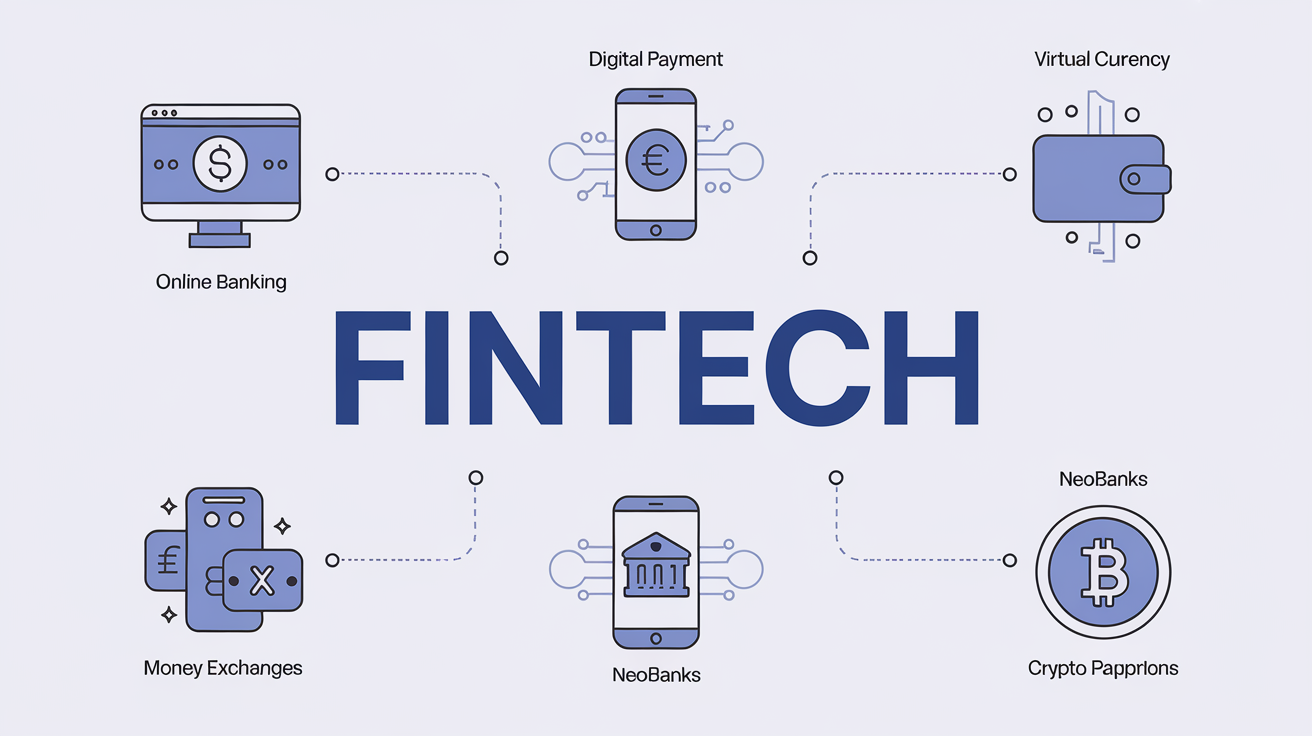What is Fintech? A breakthrough financial solution for businesses

What is Fintech?
Fintech (Financial Technology) is the combination of technology and finance to develop advanced solutions that optimize transaction processes and financial management. From electronic payments, digital banking, to blockchain technology and AI, fintech is revolutionizing how we manage and use financial services.

Fintech Applications
Electronic Payments: Platforms like PayPal, Stripe, VNPay help users make quick and secure online transactions, eliminating the reliance on cash. QR code technology and contactless payments are becoming increasingly popular.
Digital Banking: Digital banks like Timo, Revolut allow users to conduct financial transactions online 24/7 without the need for a physical branch. By using AI and Big Data, digital banks can provide personalized services to customers.
Investment & Financial Management: Platforms like Robinhood, Binance allow users to invest in stocks, cryptocurrencies without intermediaries, while also providing analysis tools to optimize investment decisions.
Blockchain & Cryptocurrencies: Blockchain supports decentralized finance (DeFi) transactions, helping reduce costs and increase security. This technology is also used in smart contracts and fields like insurance and supply chains.

Benefits and Challenges of Fintech for Businesses
Benefits:
Increased operational efficiency: Fintech helps businesses reduce costs by automating financial processes.
Market expansion: Digital payment methods allow businesses to reach global customers without currency barriers.
Improved customer experience: Fintech provides fast, convenient payment experiences through electronic wallets, QR code payments.
Enhanced financial management: Fintech platforms help businesses track cash flow and manage budgets effectively.
Challenges:
Data security and safety: Cybersecurity threats and financial fraud are significant risks for businesses using fintech.
Regulatory compliance: Regulations around fintech vary between countries and change frequently, requiring businesses to continuously adapt.
System integration: Businesses using traditional financial systems face challenges when integrating with modern fintech platforms.
Future Trends in Fintech
Expansion of digital banking and e-wallets: Digital banks and e-wallets are becoming integral to modern financial ecosystems, replacing traditional banking due to convenience and cost savings.
AI and Big Data in finance: AI helps analyze financial behaviors and optimize customer experiences, while Big Data improves credit evaluation and fraud detection.
Growth of DeFi and blockchain: Decentralized Finance (DeFi) and blockchain are changing the way financial transactions are conducted, offering opportunities for intermediary-free transactions, reducing costs, and increasing transparency.
Financial solutions for SMEs: Peer-to-peer lending, financial management software, and fast payment services are helping small and medium-sized enterprises (SMEs) access capital more easily and optimize operations.
Conclusion
Fintech continues to offer immense opportunities for individuals and businesses, from cost savings, improving efficiency, to market expansion. However, businesses must be prepared to face challenges in terms of security, legal compliance, and system integration when adopting fintech solutions. Stay prepared and take full advantage of these trends to avoid falling behind in the financial technology revolution!

